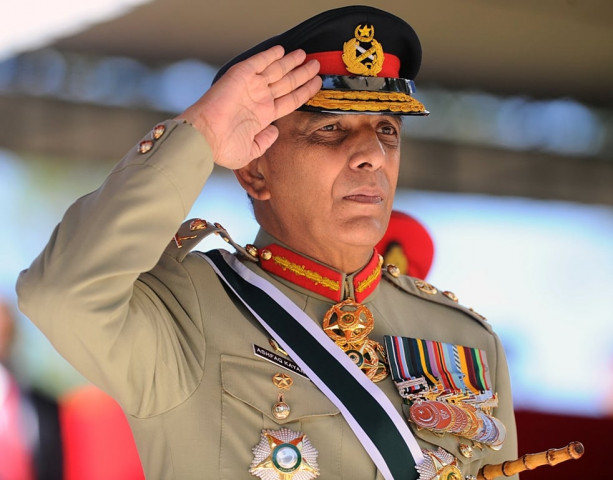Tackling terrorism: Kayani endorses peace overtures
Says army will use force against TTP only as a last resort.

Chief of Army Staff General Ashfaq Parvez Kayani. PHOTO: AFP
Chief of Army Staff General Ashfaq Parvez Kayani on Saturday threw his weight behind the proposed peace talks with the Tehreek-e-Taliban Pakistan but cautioned that the process should be undertaken strictly within the parameters of the constitution.
Addressing the passing out parade of the 128th Long Course at the Pakistan Military Academy, he said that terrorism was a big challenge, and the nation had to decide ways and means of the dialogue process, whose contours were becoming clearer with time.
General Kayani said that the army would turn to the use of brute force only as a last resort.
“If needed, the army is fully prepared for its effective use. The army has no confusion about its role in both the situations and is capable of rooting out militancy.”
He dispelled the impression that the overture of dialogue was initiated following setbacks in the war against terrorism.

“The impression is totally wrong. The army has given matchless sacrifices in the war against terrorism and achieved major successes against the menace in Swat, South Waziristan, Orakzai, Mohmand, Bajaur, Dir and recently in Tirah Valley.”
He said the army purged Swat of militants through a swift and effective military operation and two million people, displaced due to operation, returned to their homes in four months.
“Today there is peace in Swat and the people of Swat are witness to this reality,” he said, adding that the army was proud of restoring the writ of the state over a 37,000-square kilometre area.
“The successes were achieved through the blood of thousands of martyrs and Ghazis and creating confusion in this regard will bring disrespect upon them. It is not difficult to gauge what would have happened today without these successes,” he added.
He said it was imperative that the dialogue process should forge unity among the nation instead of creating any division, adding the dialogue must be within the constitutional parameters.
Kayani said the country was currently facing many challenges including terrorism. “But only the people, who accept and face challenges, emerge as a true nation,” he added.
“We should accept that neither any particular person nor any segment of society has a remedy for the problems. We should also accept that these problems cannot be resolved in a few months or years.”
Talking about the often rocky civil-military ties in the past, he said the relations among state institutions were not exemplary anywhere in the world.
He said that some mistakes had been committed during the process of the evolution of governing systems all over the world and the same was the case in Pakistan. “But the society has a key role to correct these mistakes through constructive criticism,” he added.
Published in The Express Tribune, October 13th, 2013.



















COMMENTS
Comments are moderated and generally will be posted if they are on-topic and not abusive.
For more information, please see our Comments FAQ